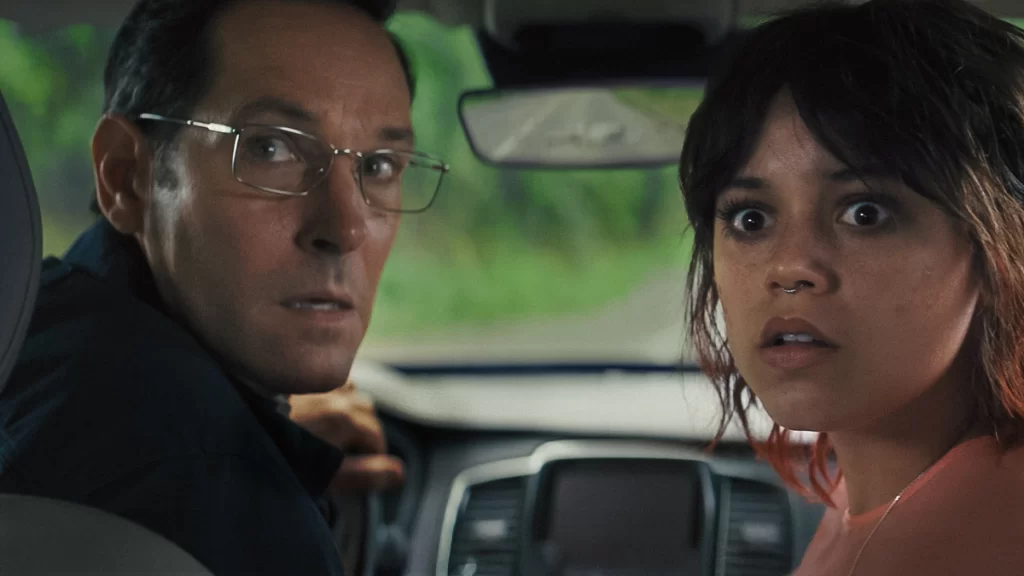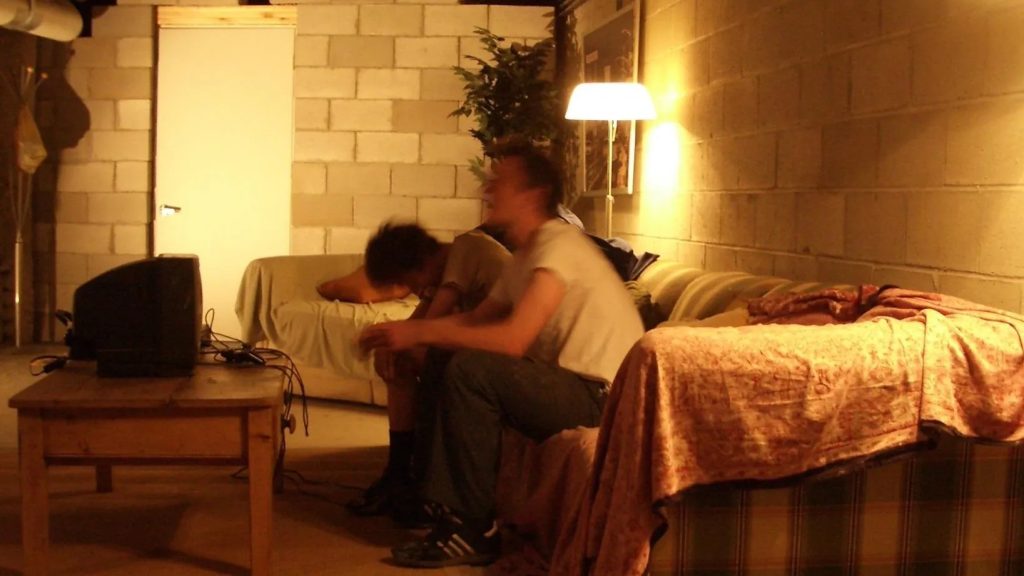Looking out at the mountainous horizon, rancher Phil Burbank (Benedict Cumberbatch) sees something others do not: a freedom in the harsh, lonely steppes of rural Montana. It’s in this desolate place director Jane Campion sets her latest masterwork. As with her Oscar-winning film The Piano, in The Power of the Dog the director uses the harsh realities of the frontier to explore the depths of human emotion and our penchant towards physical and emotional violence. With finely tuned performances, Campion and her crew craft a western stripped to the bone, under which they find a beating heart as tender as it is cruel.
Based on the novel of the same name by Thomas Savage, The Power of the Dog follows the deteriorating relationship between Burbank and his soft-spoken brother George (Jesse Plemons). It’s 1925 and the mythology of the American West has been well established, although technology and civilization begin to creep into this untamed land. Partnering with cinematographer Ari Wegner (Zola, Lady Macbeth), Campion limns the bright western light to her native New Zealand, a stand-in for Montana. Wegner’s camerawork is fluid, equally at ease capturing the rough horseback ranch work as she is the delicate interiors. Use of natural light underscores the vast possibility of the western landscape, while muted candlelight gives a claustrophobic feeling inside, whether it’s day or night.
Together brothers Phil and George have built a ranching empire, needing a dozen or more men to herd their hundreds of heads of cattle. Coming in from a long drive, Phil is rough and loose, George rigid and refined. Although clearly the boss, Phil prefers to shoot the shit with his rowdy men, while George handles the logistics of their meal at the local inn. Even before the proprietress Rose (Kirsten Dunst) comes between them it’s clear there is a fissure in their relationship.
Hanging over everything Phil does is the ghost of his mentor Bronco Henry, who it seems has been dead some twenty odd years and yet is as alive within Phil as his brother George. Everything Phil is he owes to what he learned from Bronco, and as the film progresses we learn just how deep a connection the two men shared. With his death, George has served to fill the emotional hole in Phil’s life; this loneliness courses underneath Phil’s stoic, agro exterior. In his most complex performance to date, Cumberbatch expertly balances the internal turmoil through Phil’s boisterous exterior. Campion and Cumberbatch both know a small glance or quick touch can often express more than a mountain of words.
We see this in his tumultuous relationship with Rose’s son Peter (Kodi Smit-McPheee), an awkward, gangly teen protective of his mother, made a “suicide widow” after his father’s death. Like Cumberbatch, Smit-McPhee uses his body to transmit a version of himself radically different from what teems inside. Appearing delicate like his mother, Peter wears white tennis shoes despite his dusty surroundings and folds decorative paper flowers. Yet when he brings this same methodical attention to detail as he dissects a rabbit in a later scene, we see he’s capable of inflicting the clinical violence of science without flinching.
When they first meet, Phil tortures the boy for his outwardly effeminate nature, using the destruction of the paper flowers as a way to display his machismo for his hired crew. Later when Peter also claims to see the dog in the mountain, Phil takes him under his wing, determined to mold him the way Bronco Henry did him decades earlier. Much is communicated through eye contact, puffs of shared smoke. While Peter uses psychological violence and intellectual intimidation to torture Rose, he finds himself drawn to her son through physical means. Here Campion subverts the macho imagery of the western, where everything takes on a hyper-phallic aura, from the shape of a saddle to a large, cylindrical railroad spike. She magnifies the imagery to such an extent they’re rendered powerless, turning these icons of masculine strength into visual punchlines.

On the other end of the spectrum lies the relationship between George and Rose. As partners off screen, Dunst and Plemons have an easy chemistry, two lonely people finding solace in one another, seeing the grace in each other. There are no grand gestures or proclamations, just a myriad of small moments that have greater meaning with each subsequent action. In a sequence just after their marriage, George quietly calls Rose marvelous. As they embrace, the camera pulls back to show them as two small figures enveloped by mountains and prairie.
Again, western tropes are upended. Plemons brings a restrained decency to George. He may be the richest man in town, but there is a core goodness he extends to all those in his world, Rose included. In one scene he becomes a waiter for her, knowing the men disrespecting her will cease now that he’s around. I couldn’t help but think of Rock Hudson in Giant, who marries spitfire Elizabeth Taylor and then, as soon as he brings her home. tries to change her. George is already weary of the hyper-masculine ways of his brother. Rose is a gentle reprieve, a match for his own gentle spirit.
Matching his subdued energy, Dunst’s Rose finds the strength to remain delicate in manner despite the harsh climate in which she finds herself. Often we see women of the west hardened by their surroundings, or driven mad by them. Dunst holds herself like a porcelain teacup able to endure minor cracks, but with every psychological blow she endures she inches closer to completely shattering. Yet even as she self-medicates with alcohol as her brother-in-law’s torment continues, she retains her grace and empathy, folding inward rather than exploding outwardly.
Weaving every emotional beat together is Jonny Greenwood’s evocative score, with its off-kilter plucking guitars that heighten the film’s tense scenes. In the brief moments where the bleakness occasionally relents, sweeter melodies are revealed, allowing one to feel the romance of the west and the possibilities it holds, while ominous strings that echo the eeriness of a prairie wind wash over others like an unsettling haze. It perfectly encapsulates those rolling hills and endless steppes that mean both freedom and isolation, or those wild winds that blow from every direction and leave you rattled.
It’s in these liminal places between what could be and what once was where human connection is paramount for survival. Where the importance of family, chosen and biological, becomes both necessary and a burden. It is in these spaces that Campion dissects the most extreme human emotions, slowly and methodically, exposing each nerve carefully so we may learn about ourselves in the process.
A
“The Power of the Dog” streams Wednesday on Netflix.



